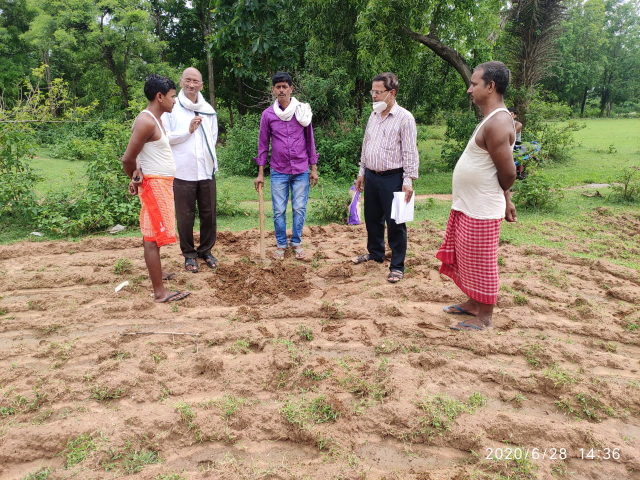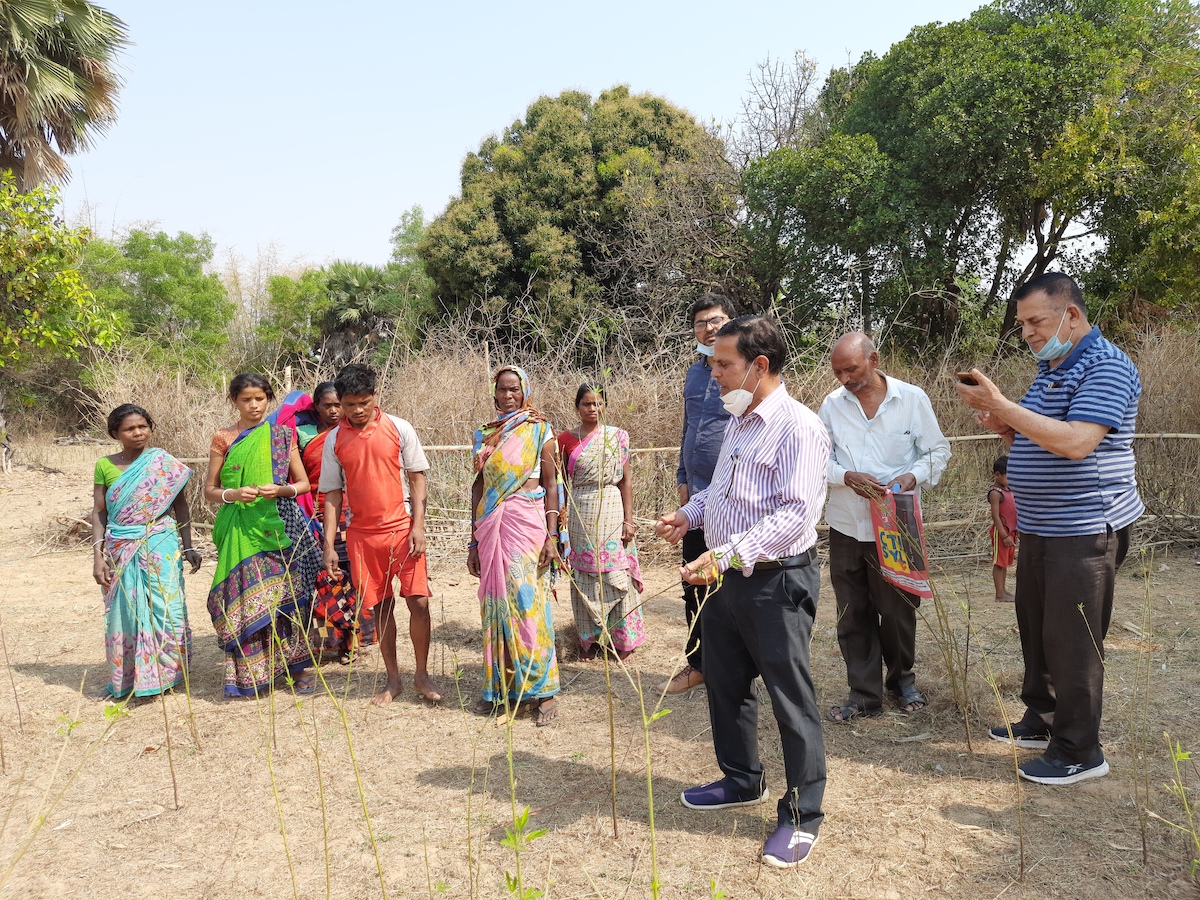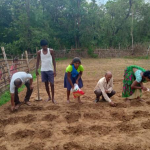Varietal Trials on Farmers Field
A major success has been on-farm trials which were carried out in all the 5 project sites to screen appropriate pulse and oil seed varieties via participatory variety selection for farmers identified traits. Seeds of farmer’s varieties collected through household survey and improved varieties suggested by the agriculture scientists were introduced in the project area via. The project created such momentum that instead of focusing only on rice fallow season, in all the project sites field trials of pulses and oil seeds were conducted for monsoon season, late monsoon season and post monsoon (rice fallow) season.
Based on the geography and climatic conditions field trials of different varieties of pulses:Pigeon pea, Black gram, Groundnut, Green gram, Cow pea, Kudrum (Hibiscus cannabinus), Ghagra (Vigna sinensis), Horseshoe gram, Gram, Khesari, Little Pea (Pisum sativum), Red lentiland oil seeds: White sesame, Black sesame, Red sesame, Niger, Mustard, Linseed and Sunflower have been successfully carried out in the project area. Field Trials carried out on the farms of 78 tribal farmers who in turn received hands on training to carry out farm-trials for on-farm conservation and varietal selection. Through participatory variety selection phenotypes of the crops have been documented, seeds collected and conserved off-farms in the 5 community seed banks established under the project.
Characterisation of Farmer's Variety
This is in process in all the states in the three seasons:
a. Monsoon Season (June to October) in upper slopy barren land
b. Relay Cropping (October) in rice field
c. Post Monsoon Season (November to March/April) in rice fallow land
Re-introduction of selected varieties for on farm conservation
On-farm trials have been completed for at least two seasons in each of the five states. Seeds of the farmer’s preferred varieties, collected through the on-farm trials, have been saved in the seed banks and a mechanism has been established in each of the project sites for sustainable utilization of seeds. Re-introduction of the selected varieties will be started from the monsoon season of the year 2021.
Farmer's Field School (FFS)
In the year 2020, an online virtual National Level Meeting was held in which all the five states participated. In the project location in Jalpaiguri, farmers define IPM is a process to kill the harmful insects to enhance the crops production. They believe that IMP practice is very important and they strongly try to practice in rotating of crops cultivation which helped to reduce the pest attack though they are using organic and chemical fertilizers. In the project area Traditionally, farmers have identified some plants like Neem, Koronja, Chotrapata etc. in their villages. These medicinal trees helped the farmers to protect their crops from insects/ pests and rodent attacked. They are always trying to planting these trees surrounding crops field.
Selection of varieties and how farmers can choose good seed and varieties? When selecting the best seeds the farmers are considering the ones that are resistant to diseases as a result, they will produce better yield with less cost. Similarly, to choose a variety of seeds that are well resistant to insects / pests that may be causing disease on farm. During the cultivation the farmers are observing the above factors and based on this selecting the plants for producing the seeds. They are keeping these seeds plants in the field for longer period than normal harvesting time.
Participatory Variety Selection
Field trials of different varieties of pulses: Pigeon pea, Black gram, Groundnut, Green gram, Kudrum, Cow pea and Ghagra, Horseshoe gram, Gram, Khesari, Little Pea (Pisum sativum), Red lentil and oil seeds: White sesame, Black sesame, Red sesame, Niger, Mustard, Linseed and Sunflower have been successfully carried out in the project area. Through participatory variety selection phenotypes of the crops have been documented, seeds collected and conserved off-farms in the 5 community seed banks established under the project. About 290 tribal farmers have received seeds from community seed banks in the project duration out of which 132 were women farmers. Seed diversity fairs have been successful in all the 5 project sites.
Varieties selected, distributed and multiplied under ITPGR project at PAIRVI
State
Total Varieties
Pulses
Oilseed
Crops introduced first time
Revived Crops
Link


